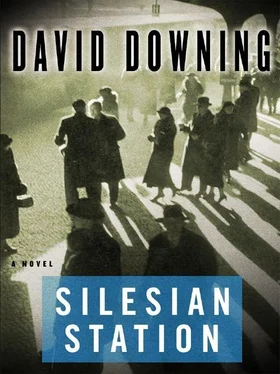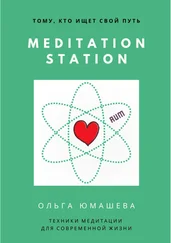David Downing - Silesian Station
Здесь есть возможность читать онлайн «David Downing - Silesian Station» весь текст электронной книги совершенно бесплатно (целиком полную версию без сокращений). В некоторых случаях можно слушать аудио, скачать через торрент в формате fb2 и присутствует краткое содержание. Жанр: Шпионский детектив, на английском языке. Описание произведения, (предисловие) а так же отзывы посетителей доступны на портале библиотеки ЛибКат.
- Название:Silesian Station
- Автор:
- Жанр:
- Год:неизвестен
- ISBN:нет данных
- Рейтинг книги:5 / 5. Голосов: 1
-
Избранное:Добавить в избранное
- Отзывы:
-
Ваша оценка:
- 100
- 1
- 2
- 3
- 4
- 5
Silesian Station: краткое содержание, описание и аннотация
Предлагаем к чтению аннотацию, описание, краткое содержание или предисловие (зависит от того, что написал сам автор книги «Silesian Station»). Если вы не нашли необходимую информацию о книге — напишите в комментариях, мы постараемся отыскать её.
Silesian Station — читать онлайн бесплатно полную книгу (весь текст) целиком
Ниже представлен текст книги, разбитый по страницам. Система сохранения места последней прочитанной страницы, позволяет с удобством читать онлайн бесплатно книгу «Silesian Station», без необходимости каждый раз заново искать на чём Вы остановились. Поставьте закладку, и сможете в любой момент перейти на страницу, на которой закончили чтение.
Интервал:
Закладка:
Russell decided that now was a good time to explore the new Metro. Descending into the depths at the Comintern station, he rode out to the far end of the original line, inspecting the stations as he went. On the way back he alighted at a couple, and spent the time between trains exploring the avant garde architecture. It was very impressive.
He emerged at Pushinskaya Station, and sought out a shaded bench in the square. A few people were out for a Sunday morning stroll, but the city seemed quiet, lost in its summer torpor. Stalin's revolution, Russell thought, was like the dog that didn't bark in the Sherlock Holmes story. What mattered was what wasn't there – there were no church bells on a Sunday morning, no advertising on trams and hoardings, no conspicuous wealth. All of which could be construed as signs of success, at the least as proof of survival. But something else was also missing, something that could only mean failure. There was no popular enthusiasm.
Where had it all gone? In 1924 this city had overflowed with young idealists from around the world, all drawn to the workers' state by its international sponsorship of justice and equality. Fifteen years on, and it was full of home-grown cynics. Somewhere along the way the hopes of something better had become the dread of something worse. News of the forthcoming Pact seeped out over the next forty-eight hours, like blood from a heavily-bandaged wound. Monday morning's Pravda was full of praise for the already-announced economic agreement, and hinted at a future extension into the political realm. The Soviet spokesman at the morning's briefing refused to confirm any such intentions, but his tone said otherwise; and as the day progressed the foreign press corps slowly gathered in the Metropole Bar, rather in the manner of steamboat passengers waiting for the order to abandon ship. Mid-evening, one intrepid hack bearded a gloomy-looking member of the British negotiating team in a hotel toilet, and was told that a member of the Russian team had confirmed an imminent visit from Ribbentrop. In the early hours of the morning a short-wave listener at the American Embassy heard German radio make the official announcement, and quickly tipped off one of the American journalists. The Metropole Bar greeted the news with a cynical cheer, but the silence thereafter was more telling. The journalists began drifting off to their rooms, most of them looking every bit as depressed as Russell felt.
The official Soviet news agency Tass removed any lingering doubts on the following morning: Foreign Minister Ribbentrop would be arriving 'in the next few days' to sign a non-aggression pact. Russell and a fellow American journalist ran two members of the British negotiating team to ground in their hotel lift, and were blithely informed that the Anglo-French negotiations with the Soviets were still ongoing. Wishful thinking or blind idiocy, the two journalists asked each other in the foyer, before realizing it didn't matter.
So why stay in Moscow? Russell asked himself. It was bad enough sharing the same continent with Ribbentrop, let alone the same city. All the agencies would carry the official details of the signing – he'd be better off in Warsaw, seeing how the Poles reacted. Nearer to Berlin and home as well.
He wrote and sent off his story, and took the Metro up to Byelorusskaya Station to reserve a sleeper on the afternoon train. Back at the Metropole he noticed Connie Goldstein in a secluded corner of the bar.
'You made it,' Goldstein said.
'I've been here since Friday. And now I'm heading back to Warsaw. The phrase "all over but the shouting" seems applicable.'
'Yes, I suppose it is.' Goldstein capped his pen, closed the notebook he'd been writing in, and smiled up at him. 'Have you got an hour or so? I'd like to show you something.'
'Sure. What is it?'
'Wait and see.'
Goldstein led him outside and hailed one of the waiting 'taxis'. 'Khodynka airfield,' he told the NKVD driver in Russian.
Russell half-expected an argument – the taxis were usually reluctant to take foreign journalists beyond the invisible boundaries of the government district – but the driver made no objection. As they sped up an eerily empty Gorky Street, Goldstein chattered happily about returning to the States, and a new grandchild born earlier that year.
The trip to Khodynka only took twenty minutes, and Russell was astonished by what greeted them: the buildings of the small airfield, along with all available poles and stretches of fencing, were hung or emblazoned with swastikas. Either the Nazi flag had figured in the last five year-plan or every seam-stress in Moscow had been up all night stitching the damn things together.
'He's arriving tomorrow,' Goldstein said.
Russell didn't reply. He was dumbstruck by the sea of swastikas. Playing for time was one thing – communists the world over had come to accept the Bolsheviks' insistence that some degree of realpolitik was necessary to the survival of the workers' state. But this went way beyond any judicious trimming of sails. This felt more like self-abasement, more like gratuitous over-compensation. Like Judas turning up at the crucifixion and insisting on having his picture taken. Ribbentrop's ego would probably explode.
'This is where Nicholas II's coronation was held in 1884,' Goldstein observed. 'They didn't make enough souvenir mugs, and fourteen hundred people were trampled to death in the stampede.'
'Wonderful,' Russell muttered. 'Just wonderful.' The journey back to Warsaw was slower than the journey out. The train clanked to halt after halt, occasionally at a barely-lit platform, most times in the middle of a seemingly endless plain. When dawn broke they were still on the Soviet side of the border, and the only breakfast came courtesy of a few enterprising peasant women, who approached the train at one of its interminable stops with scraps of bread and a few raw carrots. It was almost ten in the morning when their train rolled out of the Soviet Union through the gap in the barbed wire, and almost noon before their Polish train left the border station. It was faster than its Russian equivalent, but not by much, and the sun was low on the western horizon by the time it reached Warsaw.
Russell made sure that trains were still running into Germany, checked into a cheap hotel opposite the station, and took a taxi to the Europejski. Finding no fellow-journalists, he moved on to the Bristol, where several foreign correspondents were lined up at the bar. There had been no official announcement of a pact, he was told, but Ribbentrop had arrived in Moscow that morning, and everyone knew that an agreement was about to be signed.
There was one Pole in the party, an English-speaking journalist with one of the local dailies. He had obviously been drinking for a while, which both explained his belligerent attitude and facilitated its expression. 'The sooner the better,' he said, thumping his palm on the polished bar. 'While we still have allies,' he added pointedly, marching an accusative gaze down the row of English faces.
Out on the street Russell saw other Polish faces brimming with a similar bravado, the facial equivalent of the cavalry he had seen in Pidsulski Square. But there were also eyes dulled by resignation, or seemingly stunned that the moment had finally arrived. The Poles he spoke to in English had only one question – would England and France live up to their obligations? Yes, Russell told them, though part of him hoped the answer was no. If sacrificing Poland would keep his son out of a European war, he'd do it in a heartbeat. The trouble was, it wouldn't.
His hotel was quieter than expected, his bed more comfortable, but he still slept badly, hovering most of the night between waking and dreaming, fragments of his own war flickering harmlessly out of reach, like a silent movie through a curtain of gauze. He woke with the smell of the trenches in his nostrils and the old familiar feeling that this was the day he would die.
Читать дальшеИнтервал:
Закладка:
Похожие книги на «Silesian Station»
Представляем Вашему вниманию похожие книги на «Silesian Station» списком для выбора. Мы отобрали схожую по названию и смыслу литературу в надежде предоставить читателям больше вариантов отыскать новые, интересные, ещё непрочитанные произведения.
Обсуждение, отзывы о книге «Silesian Station» и просто собственные мнения читателей. Оставьте ваши комментарии, напишите, что Вы думаете о произведении, его смысле или главных героях. Укажите что конкретно понравилось, а что нет, и почему Вы так считаете.












